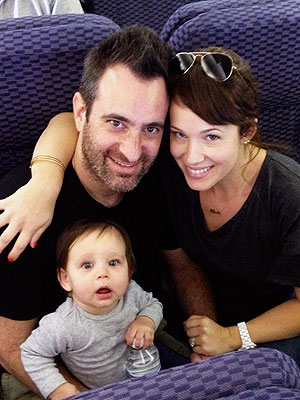YANGON (Reuters) – Myanmar is on the cusp of a mobile revolution. Only it’s happening way too slowly for many locals.
Last week the government invited expressions of interest for two mobile phone licenses – a first step towards increasing mobile penetration from its current 5-10 percent to 80 percent in three years. That would lift it off the bottom of the world’s ladder of mobile use and put it on a par with neighbors like Bangladesh.
In the meantime, users are chafing at the pace and price of adding connections.
A year ago the informal technology conference Barcamp Yangon was buzzing with rumours of a SIM card that would cost about $ 6 – or 1 percent of its actual price at the time.
A year on, Barcamp is back but the talk is much less dramatic: whether the state-owned operator might this week release SIM cards costing between around $ 100. That would still be half of what the last tranche sold for, but it still leaves many unhappy.
“The clock is ticking,” says Ravi Chhabra, a local technology entrepreneur. “People are frustrated. There is lots of speculation and this creates anxiety.”
Nobody questions the need for more connections, and foreign operators have salivated at what amounts to one of the last major untapped markets.
President Thein Sein has made it clear that mobile telephony is a cornerstone of his policy, and has also vowed that mobile communications would be cheap – a promise he reiterated to a conference of donors on Saturday.
Still, getting it done is not proving easy.
The notice inviting expressions of interest in two licenses was a welcome sign that things were moving, but IT experts and sources close to the communications ministry said the timing was surprising, given that the revised telecommunications law which would define the nature of any investment had yet to be passed by the parliament.
The government said in an appendix to the notice that a new draft of the law – which had been quietly withdrawn last year after criticism about its contents – had been submitted to parliament and was expected to be passed by June.
“After the law is finished then there should be a clear policy before any expression of interest is sought,” said Zaw Min Oo, secretary general of the Myanmar Computer Federation.
On top of that, the next day Telecommunications Minister Thein Tun, who had overall responsibility for mobile licensing, resigned. No reason has been given, and officials declined to comment.
“BIT OF AN EARTHQUAKE”
Sources close to the ministry say his departure had been rumored for several months, but the timing was unexpected, and raises questions about what might happen next.
“It’s been a bit of an earthquake; now we need to sit back and watch, see which buildings fall down,” said one source close to the ministry who, like others interviewed, declined to be named for fear of jeopardizing business relationships with the ministry and its companies.
Not everyone is concerned. Romain Caillaud, a Yangon-based consultant with Vriens and Partners, says both the notice and the resignation “should accelerate the liberalization and growth of the telecom sector.”
Major foreign telecommunications companies are likely to submit expressions of interest ahead of the deadline of January 25, say experts.
Alessio Polastri, a lawyer who represents several such firms in Myanmar, says whatever delay in the process there has been will benefit the government.
“It’s almost an asset in that initial concerns about political stability have disappeared, so, most likely, not only more telecommunications companies will take part in the tender process but also the winners shall be more confident in committing higher investment,” he said.
More thorny for the government, however, may be assuaging local interests. By inviting expressions of interest for two licenses, the government appeared to be committing itself to offering four licenses – two for foreign companies, and two for local ones: state-owned Myanmar Posts and Telecommunications, or MPT, and Yatanarpon Teleport, an internet service provider which is 51 percent owned by MPT.
Some local businesspeople are questioning the wisdom of this, saying that MPT should not effectively own more than one license.
CHEAP SIM CARDS
Dozens of local IT entrepreneurs last November formed the Myanmar Technologies and Investment Corporation to bid for a license, and are currently lobbying parliament to merge the two local licenses, giving them a better chance of either winning one or setting up with a partner.
“So far the ministries have come back with positive responses and encouraged us,” said Thaung Su Nyein, who is also managing director of local media and IT company Information Matrix. “Even if we don’t get this license we’ve been led to understand we’ll get other business licenses.”
But more pressing is growing public frustration at the lack of progress on the ground.
Last year’s talk of cheaper SIM cards was fuelled partly by MPT’s decision to press ahead with expanding its own network, promising to add 30 million GSM connections by 2016 – financed by allowing contractors building the towers to sell a certain number of SIM cards.
Since then, the rumor mill has been alive with chatter about when new tranches of SIM cards might be available, and how much they might cost. A few weeks before the tech meet up, a previously obscure businessman held a press conference at which he promised SIM cards costing only 5,000 kyat (around $ 6).
While the promise went unfulfilled and the businessman disappeared from view, it started a movement of sorts: stickers appeared demanding 5,000 kyat SIM cards and several people were arrested in small demonstrations, according to exile media.
Those hopes have been dashed, but the shortfall of SIM cards ensures interest in a steady stream of sometimes conflicting reports about another imminent sale. One local media report quoted officials as saying more than 1.5 million SIM cards would be sold on Monday for 100,000 kyat each, or about $ 112.
That would still be out of the reach of most people in Myanmar.
“People want to see faster progress,” said a source close to the ministry. “At least half the country want a phone, and they want it soon.”
(Editing by Daniel Magnowski)
Tech News Headlines – Yahoo! News
Title Post: Mobile revolution in Myanmar is on the cards, but too slow for many
Url Post: http://www.news.fluser.com/mobile-revolution-in-myanmar-is-on-the-cards-but-too-slow-for-many/
Link To Post : Mobile revolution in Myanmar is on the cards, but too slow for many
Rating:
100%
based on 99998 ratings.
5 user reviews.
Author:
Thanks for visiting the blog, If any criticism and suggestions please leave a comment














